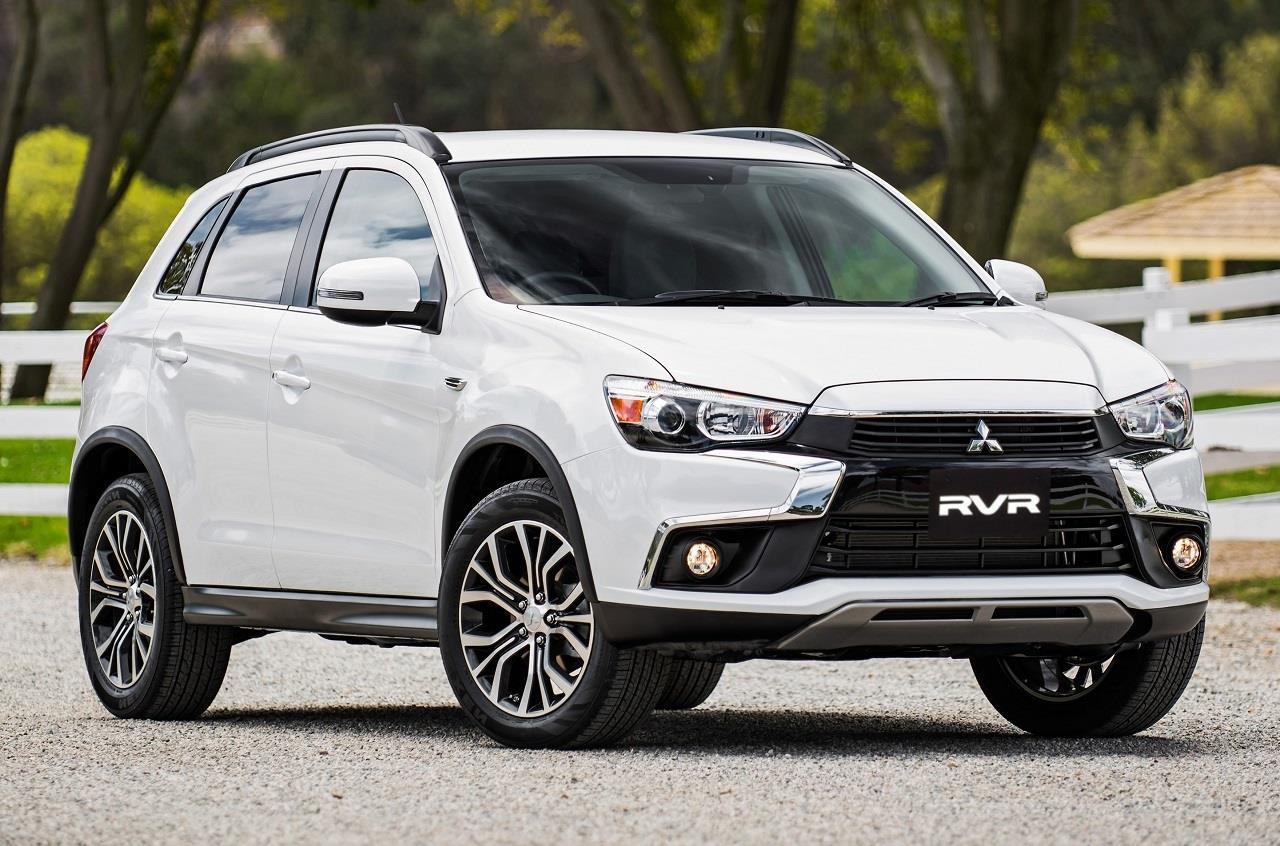By Shari Prymak
2016 Mitsubishi RVR - There is something I find conflicting about small crossovers. On the one hand, they are one of the fasting growing, hottest car segments on the market. But on the other, they make little to no logical sense whatsoever.
It doesn't matter whether you get a CR-V, RAV4, Escape, or whatever. Essentially, what you are buying is a taller, more expensive, more gas thirsty, yet no more practical version of the family station wagon. It doesn't matter though, because everyone has been convinced that crossover's are cool, safe, and rational, and the market has responded to that in a big way.
Certainly Mitsubishi has taken advantage of the hype, because, despite being a small to the point of non-existent car company, they have two small crossovers: the compact Outlander and the even compacterer RVR.
Being a subcompact crossover, the RVR competes against the likes of the Mazda CX-3, Chevrolet Trax, and Honda HR-V.
The base MSRP is only $19,998, making it one of the cheapest Japanese crossovers on the market. Even when you add popular options such as all-wheel drive, CVT automatic transmission, and comforts such as Bluetooth, backup camera, and alloy wheels, the MSRP barely tops 26 grand. Another nice touch is that Mitsubishi's come standard with a 5 year/100,000km comprehensive and 10 year/160,000km powertrain warranty.
I'm not much for crossovers, but I must admit, the RVR does have a pretty cool aggressive look going on. It isn't as bland as a Honda HR-V, nor is it over the top like the Nissan Juke. It just looks right.
With its relatively low door sills, stepping into the RVR's driver seat is an easy task. Yet, once seated, you get the high ride height that crossover buyer's clamor for. The cabin is also airy, spacious, and can easily accommodate four people plus cargo in a snap. Controls for the touchscreen and climate are as simple as they come. And even though the plastics are nothing to brag about, they do give off the impression of ruggedness in a sort of Jeepish way.
The RVR uses the same 148hp, 145lb-ft of torque, 2.0L 4-cylinder engine from the Lancer, mated to either a 5-speed manual gearbox or a CVT automatic. I was expecting this modest drivetrain to be a bit crude and lackluster in a crossover, but that wasn't the case at all. Both the engine and transmission felt well suited to the vehicle. And as far as I'm concerned, Mitsubishi has nicked the common CVT complaints. This transmission felt perfectly smooth and well calibrated. It was a fine match for the adequately refined and peppy engine.
The added bonus was excellent fuel economy. I averaged 9.3 L/100km over my 500km road test, terrific for a crossover. It's worth noting that, due to good weather conditions, my RVR was kept in the more frugal 2WD mode, rather than the available 4WD and 4WD lock modes. It is nice though to see that kind of all-wheel drive flexibility on a small crossover. For those who want a bit more power, a 2.4L engine is available on higher trim levels.
Over my one week test period, I drove the RVR through all sorts of typical driving scenarios, and most were quite pleasurable. The RVR has the feel of a well-optimized sedan rather than a heavy crossover. The brakes feel strong and linear. And thanks to its relatively small size and good outward visibility, the RVR seems to shrink around the driver, giving you a pleasing sense of control.
If there is any area where the RVR could use improvement, it would have to be cornering and road-holding performance. It exhibits a fair amount of body-roll through fast corners. And while it is a nice driver in most scenarios, it can feel a bit wondery and jiggly at highway speeds, making it feel as though it lacks plantedness. The other concern I have with the RVR is that, being a Mitsubishi, the dealer network is as small as they come, which makes servicing an issue for some.
These are all fairly minor niggles, however, because, as it turns out, I do like the RVR. I like how it looks. I like the warranty. I like that it's Japanese. And I like the price on the lower end models. With pricing being equal, the Honda HR-V is still a better all-around crossover, but with the right purchase incentives from Mitsubishi, the RVR would be a worthy alternative.

